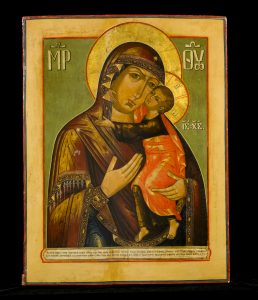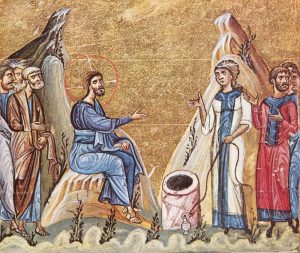Christ is in our midst!
Welcome to Dear parishioners and guests! You are invited, after each Divine Liturgy, to coffee and hard rolls in the church hall.
1. Judy Ellis leads the mercy project which provides food items to the needy. A container is in our church vestibule for non-perishable food. This collection will be taken every week. Father Iura will distribute the food to those in need. Thank you for your generosity.
2. The next meeting of the Ukrainian-American Veteran Bishop John Stock Post 33 of New Haven will be held on Sunday, May 21, 2017. We will begin the meeting immediately following the second Divine Liturgy. The meeting will be held in Classroom 2. For more information, contact the Post Commander at 203-389-6076 or crharv384@optimum.net.
3. Father Iura has formed a Church Committee. Members are Natalie Chermak, Nataliya Lyalka, Andrew Bamber, Anna Salemme, Allan Yursha, Walter Ushchak, Halya Lodynsky, Marybeth Gawron, Christine Melnyk, Myron Melnyk, Maxim Thibodeau, Maria Antonyshyn, Michael Muryn, and Carl Harvey. More information on the committee and their work will be given soon. Thank you to the members for their service to the parish.
4. Pyrohy Saturday is coming up. We will be making Pyrohy on Saturday, May 20. Walter Ushchak is seeking help. The project needs your help also on Friday, May 19, to peel potatoes.
5. ROOF REPAIR FUND: Please make a generous contribution to allow us to repair the leaking roof of the Church Hall and other roof structures adjoining the Church and the Hall. These roofs must be repaid to prevent serious water damage to our property and we cannot pay for them from regular weekly collection. Roof Repair Fund envelope are available in the vestibule of our church for your special sacrificial gift. Thank you for helping to keep our physical structures in good condition for our use today and for the next generation tomorrow.
6. The City of New Haven Memorial Day Ceremonies on May 28th
The observance this year will feature two wreath-laying ceremonies and a free patriotic concert. At 1:00 p.m. at the Vietnam Veterans Memorial park on Long Wharf Drive, there will be a wreath-laying ceremony at the V-shaped monument. At 3:00p.m., the ceremony will be at the World War Memorial Flagpole on the New haven Green. At 5:00 p.m. there will be a FREE patriotic concert featuring Orchestra New England at the John Lyman Center for the Performing Arts. For more information or to obtain tickets to the concert, contact Carl R, Harvey, Commander UAV Post 33 by calling (203) 389-6076 or by e-mail at crharv3841@optimum.net prior to May 18th.
 Good and Gentle God, we pray in gratitude for our mothers and for all the women of theory who have joined with you in the wonder of bringing forth new life. You who became human through a woman, grant to all mothers the courage they need to face the uncertain future that life with children always brings.
Good and Gentle God, we pray in gratitude for our mothers and for all the women of theory who have joined with you in the wonder of bringing forth new life. You who became human through a woman, grant to all mothers the courage they need to face the uncertain future that life with children always brings. The theme of baptism continues in this Sunday’s Gospel, re-affirming that Pascha is a feast of resurrection and of baptism, being born into eternal life. The center of Jesus’ conversation with this unnamed woman (the Church later gave her the name Photine, the “enlightened woman”) is about water. They met at Jacob’s well, a place of great tradition, a sign and a promise of God’s love and mercy for his people. Jacob’s well provided the riches of water to a desert place, the sign that God would always provide for and bless his people. However, the encounter with the woman reveals something more: Jesus is the Messiah to come, he is greater than the Patriarch Jacob. The water of Jacob’s well is only for this world, Jesus would give “the water that would become a spring of water welling up to eternal life. (John 4:14)” This clearly refers to our baptisms, as it comes immediately after the comparison of Jesus with John the Baptist, and the baptisms done by Jesus’ disciples.
The theme of baptism continues in this Sunday’s Gospel, re-affirming that Pascha is a feast of resurrection and of baptism, being born into eternal life. The center of Jesus’ conversation with this unnamed woman (the Church later gave her the name Photine, the “enlightened woman”) is about water. They met at Jacob’s well, a place of great tradition, a sign and a promise of God’s love and mercy for his people. Jacob’s well provided the riches of water to a desert place, the sign that God would always provide for and bless his people. However, the encounter with the woman reveals something more: Jesus is the Messiah to come, he is greater than the Patriarch Jacob. The water of Jacob’s well is only for this world, Jesus would give “the water that would become a spring of water welling up to eternal life. (John 4:14)” This clearly refers to our baptisms, as it comes immediately after the comparison of Jesus with John the Baptist, and the baptisms done by Jesus’ disciples.